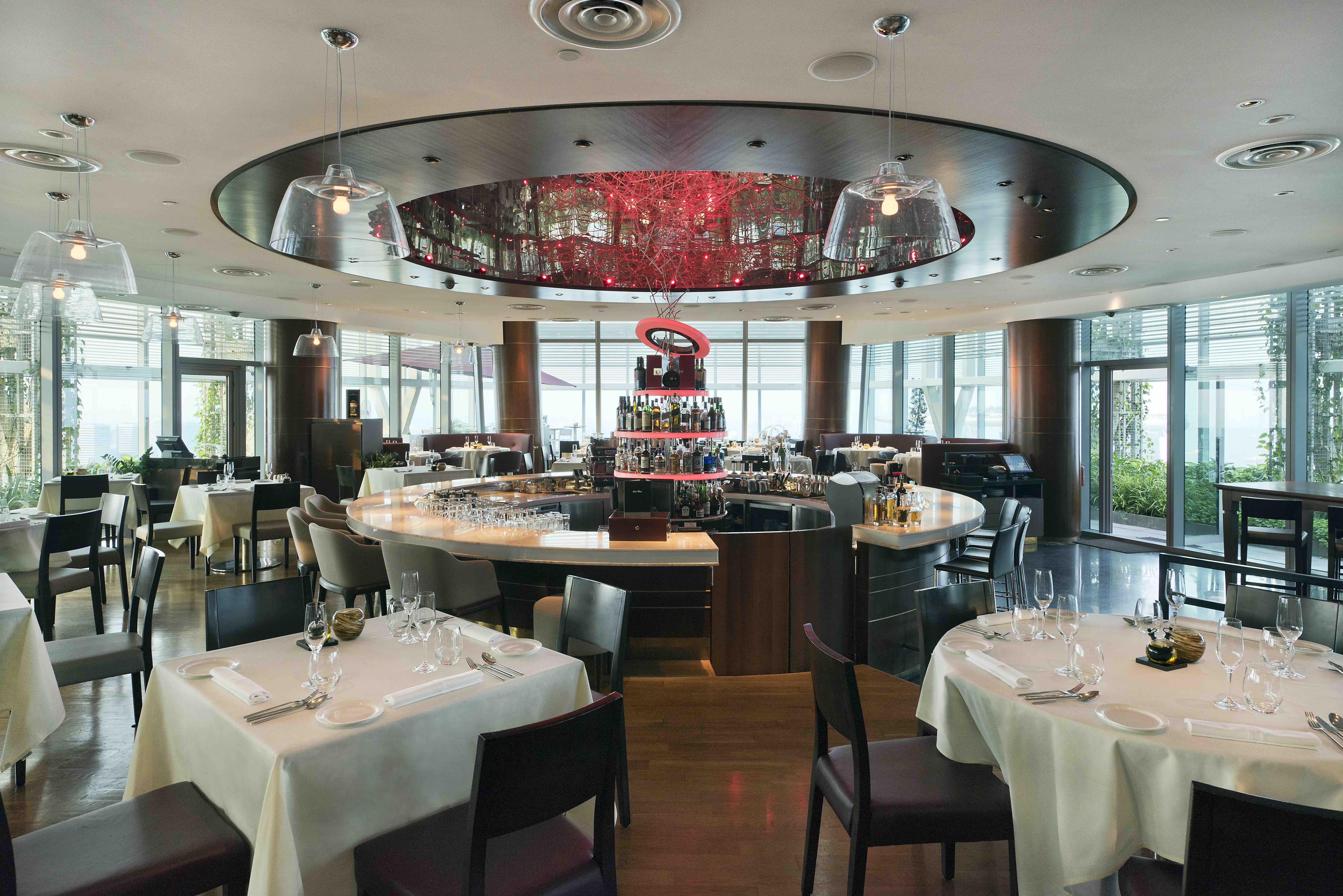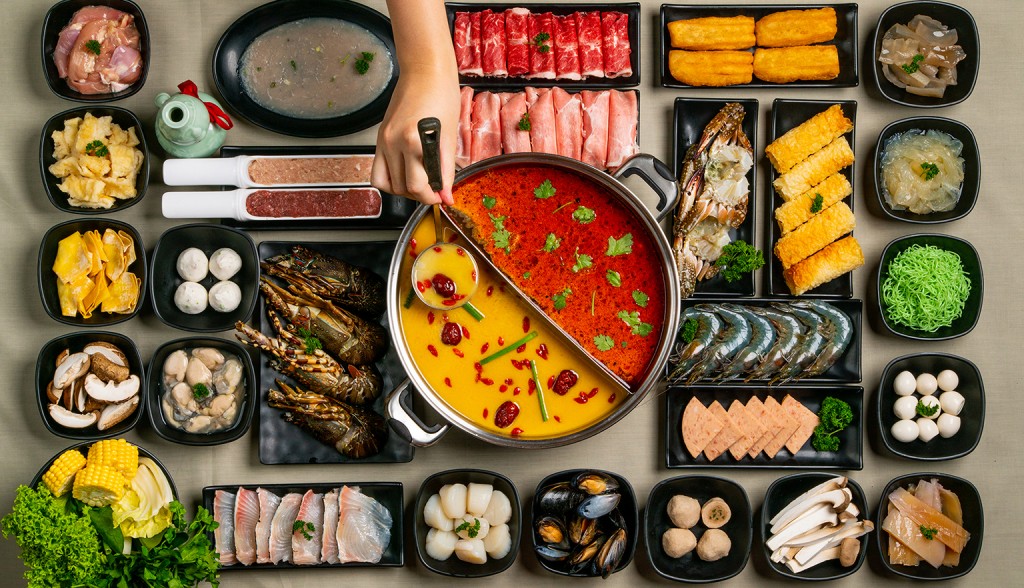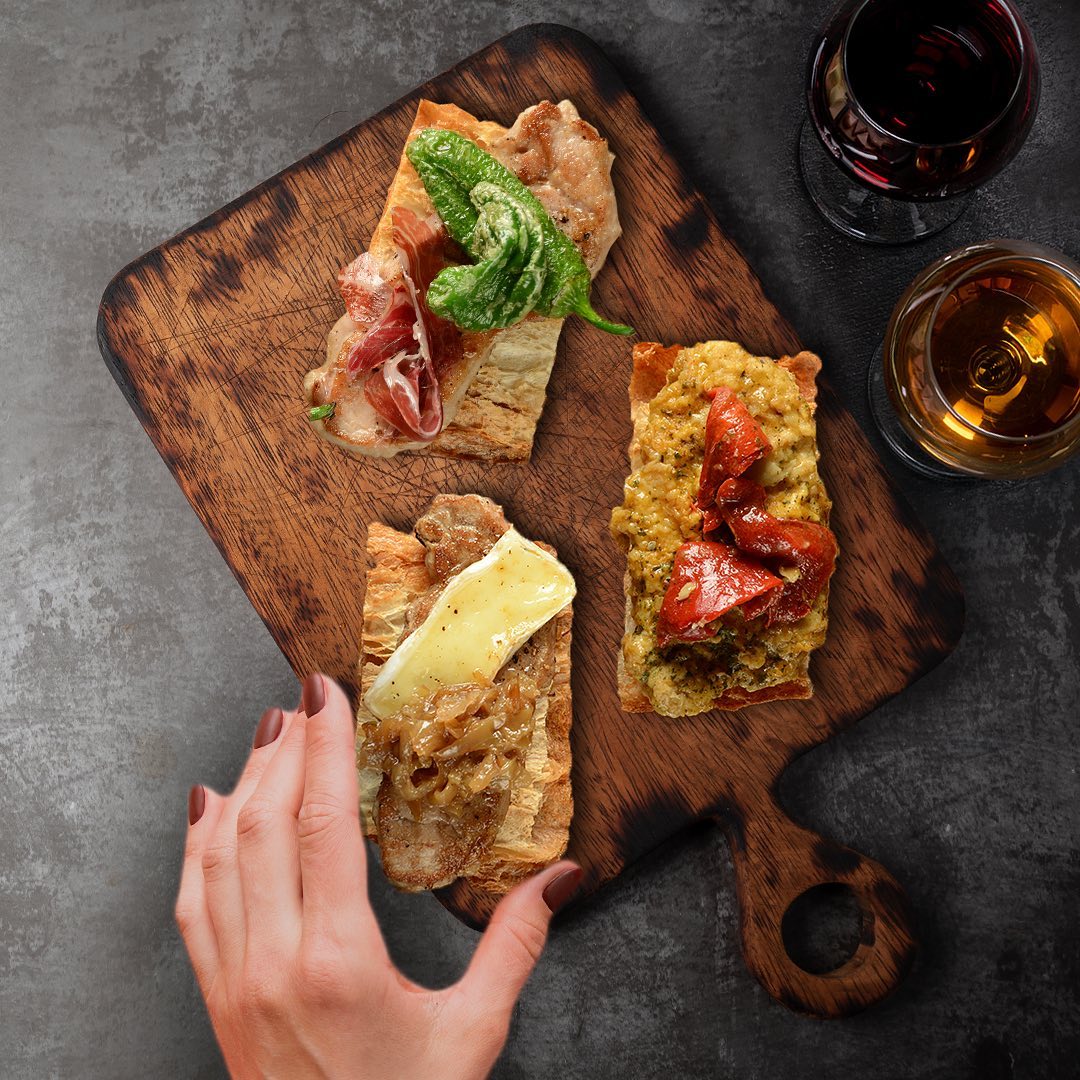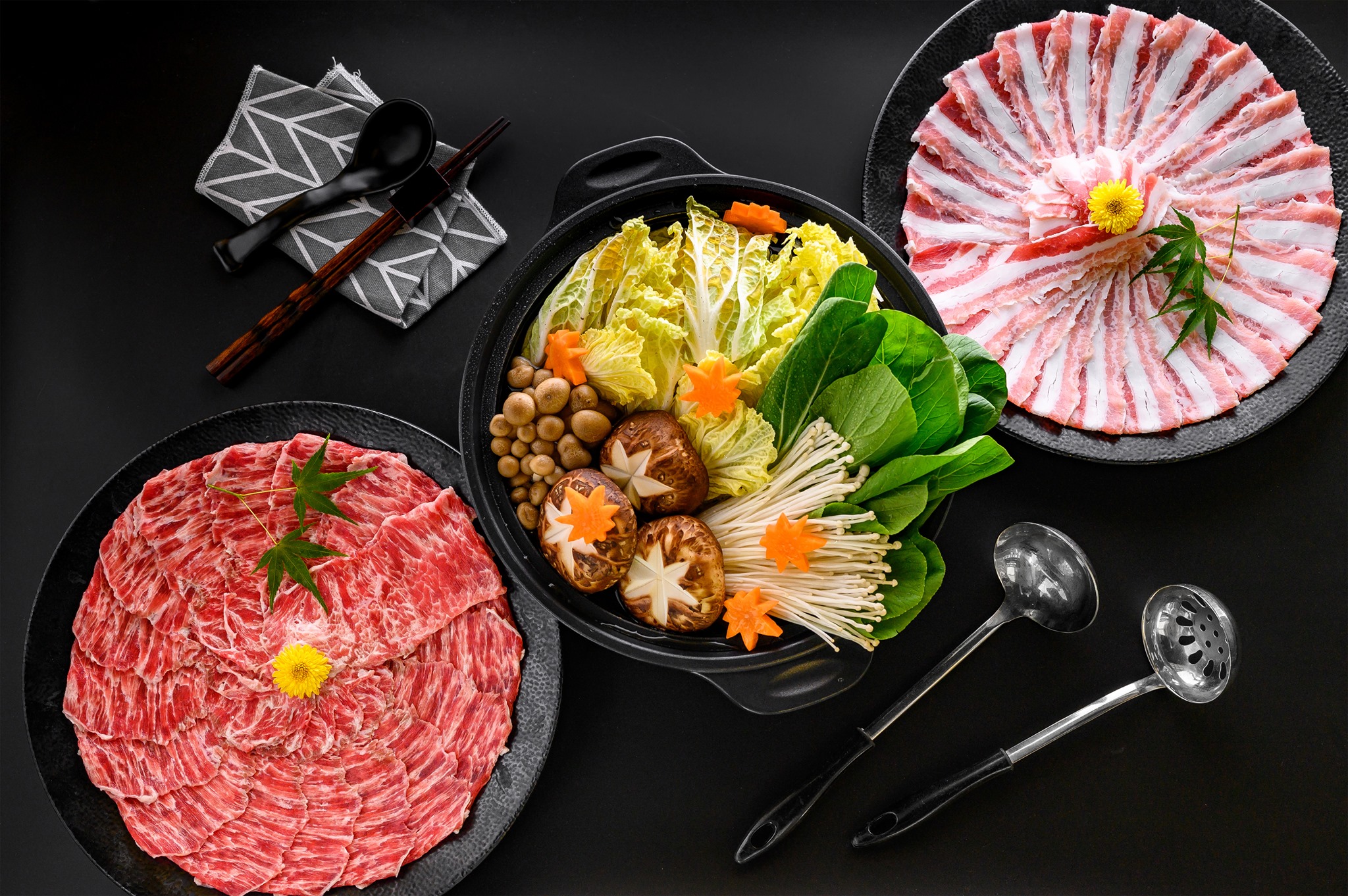Bernie (who thinks he’s the boss)
He has set up four restaurants (Bernie’s in Upper Changi, Bernie’s BFD on East Coast Parkway, Bernie’s Goes to Town on Boat Quay and Bernie’s on Jalan Tua Kong (now Blooie’s), has been involved in two more (Home Beach Bar and Handlebar), and is now on to his second Botak Jones hawker stall. The first is in Tuas, and the second in Ang Mo Kio.
Sum up your experience running restaurants.
I made more money than I ever had—and I lost it all.
Why keep on running your own food and beverage business?
Bill Gates didn’t start Microsoft to be rich, he did it to be powerful. Steve Jobs started Apple to be an innovator. The focus of strong entrepreneurs is not money but what they do. So even if they lose money they can still keep doing what they do.
How has the transition from restaurants to hawker stalls been?
Boat Quay [his last restaurant] was a financial disaster. We lost a lot of money. By the time we realized what was happening, it was too late to turn it around. BFD was our heyday. We were getting offers everyday from investors. Botak Jones is now starting to brand itself—most of our business is repeat business. We are selling more food at our two stalls than we did at BFD.
How is Botak Jones different from your previous restaurants?
Botak Jones’s business model is smarter than Bernie’s business plan. I went out smarter this time, was quicker at identifying problems and adjusting my business to overcome them.
What are you first: An entrepreneur or a food guy?
I’m an entrepreneur first, a food guy second and a businessman third.
What’s the difference between an entrepreneur and a businessman?
For an entrepreneur, what he does, whether it is food or something else, is his mission. He wants to innovate and bring new stuff to the table. A businessman is someone who is concerned with the nuts and bolts of running a company. Successful entrepreneurs combine these things and bring in people to help in the areas they can’t do themselves.
What qualities do you need to stick it out in the restaurant business?
Drive—lots of drive. You will hit many roadblocks, that’s when you need to take a breather to figure out a way to overcome the hurdles. You also need to learn to sell your ideas to the government authorities. You have to be patient, because different authorities work at different paces. And, you need good relationships—with your customers and staff first, and then with your suppliers. After I lost everything at Boat Quay and resumed business, most of my suppliers agreed to do business with me. They trusted me.
If you had to do it all over again, is there anything you would do differently?
Knowing what I know now about the restaurant business, I would have tried to be smarter from the start. I would not have done the club thing [at Boat Quay], I would have paid more attention to stalls and catering, and let restaurants and clubs be the second generation of my business. But there is a Catch-22 to all this—my stalls would not be successful now if people didn’t already know me from my restaurants.
Any advice for would-be restaurateurs?
Don’t do it for the money. Let the money be a measuring stick of your success, a bonus. Judge your restaurant by the degree of satisfaction you get out of it. For me, wanting to build something and having people find value in what I’ve done keeps me motivated. And you gotta have fun! F&B is about entertainment, making sure that your customers are having a good time.
Samia Ahad (the seasoned boss)
About six years ago she opened her first restaurant, Coriander Leaf, which is still going strong. Not only does it dish out delicious food, it offers cookery classes and corporate training. How does Samia do it? She’s tough, she’s worldly and she’s just damn good at what she does.
You started as a cook before opening your own restaurant. What was that like?
I started cooking in my early 30s (late for chefs). I worked as a line cook in New York City till I was seven months pregnant and then got literally thrown out as nobody could get around me in the narrow kitchen aisles. I then took a break before moving to Singapore. Here, I held a cookery class at home for a group of friends. It was supposed to be a one-off affair, but it evolved into a thrice weekly thing. Encouraged by the response, I decided to take it to the next stage. My initial plan was to open a cookery school, but it didn’t make business sense at that time, so I decided to go the whole hog and open a restaurant from where I could also run cookery classes.
What did you learn during your years in the kitchen that helped you start and run your own restaurant?
Actually, not a lot. Working in a kitchen is very different from running a business. That stint taught me how to run a kitchen and control food costs, but not all the other parts of running a full-fledged restaurant. Also, I was never an executive chef in the years that I worked in kitchens in New York. I was merely a line cook, so it was a momentous jump from that to running my own restaurant!
Are you a chef first and a businesswoman second?
I wish! Being a chef is what I miss most. Unfortunately I have to spend more time being a businesswoman than being a chef. However, I do fulfil my desire to cook through my cookery school, albeit not as much I’d like to.
What are the biggest challenges you face in running your own restaurant?
Day to day hassles—just when you think you have everything under control a new problem arises. Staffing is also a huge issue and probably the biggest one. The others are maintaining consistency and quality, managing people and trying to keep harmony between the front and back of house.
If you could do it all over again, is there anything you would do differently?
Yes. I would not do it alone. It is a lot of stress for one person to shoulder and a huge time commitment!
What does a restaurateur need most to succeed? Money, culinary skills …
First and foremost—PASSION!! If you don’t have the passion, you cannot survive in this business. You need capital, of course, and no restaurant makes money from day one. Controlling costs is key. And, as for culinary skills, well, they are preferable!
Many small restaurants don’t last five years. What are some of the common mistakes they make?
Spending too much and not leaving enough of a cushion. It takes time to make money back and get regular cash flow. Failure to maintain quality is another.
Your restaurant has been open for more than five years now. Does it get any easier?
Not really. There are always new challenges. Also, one has to constantly keep innovating while at the same maintaining consistency.
What advice do you have for would be restaurateurs?
Do not glamorize the business. If you’re not willing to get your hands dirty, don’t enter this industry!! If you’re going solo, you have to be prepared to put in the time. My typical day starts at 6:45am and ends at one in the morning—and I work on Sundays too.
Willin Low (the new boss)
After practising law for eight years, this 30-something decided to chuck it all in and open a restaurant, Wild Rocket at Mount Emily. About five months old, Wild Rocket is having a wild time.
What made you leave law?
I enjoyed law but felt that life was too short to do just one thing. So in the last two years that I practised law I became a rent-a-chef. I started catering for friends, who then encouraged me to start my own restaurant.
How did you make the transition from law into the restaurant business?
After I quit my job, I became an apprentice at a restaurant, actually secretly hoping I would hate it so I could lay my desire to start a restaurant to rest. After six months I quit that to volunteer overseas. Three days before I was due to leave Singapore, my stint got cancelled and I suddenly found myself looking for a location for my restaurant.
Was starting and running a restaurant what you expected it to be?
No! It was much, much harder than I thought it would be. I thought loving cooking was enough to run a restaurant, and soon discovered I was wrong! Tough things were getting government licenses approved, hiring staff, finding good suppliers and fixing the menu. Everything that could go wrong did.
Is running a restaurant a lifestyle decision or a business decision for you?
For me it is a lifestyle decision first and a business decision second. But you need sound business principles to stay afloat, such as only spending money after you have made the money, and not the other way round.
What does a restaurant need more to succeed: A good chef or a good CEO?
You need both. I am a chef first though, and I think true businessmen will not venture into the F&B business. You definitely need interest and passion to stay in this business.
Did you write a business plan for Wild Rocket?
I did, but I’m not a business person and my plan was laughable. I rely on my business sense and good old common sense. I’m not a hard core entrepreneur, but I take calculated risks.
If you had to do it all over again, would you?
If I had known then what I know now, I might not have done it. But I enjoy being my own boss, and I’d rather stay this way. Even if Wild Rocket fails, I will have no regrets because I tried.
Any advice for would-be restaurateurs?
Go for it.





